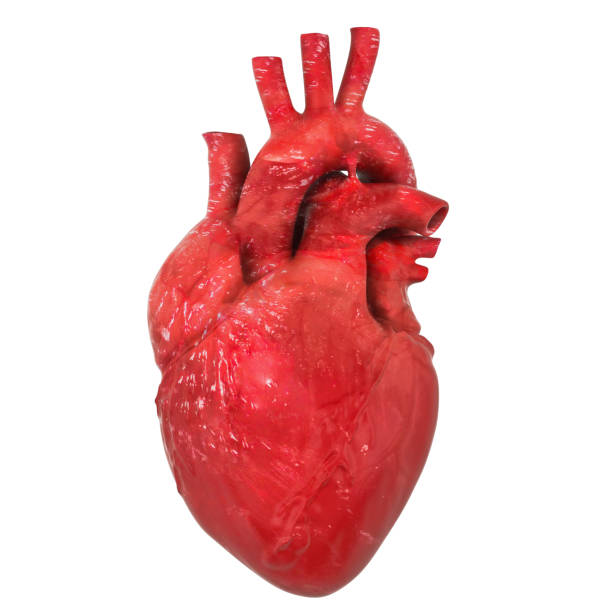What Is Heart Transplant?
A heart transplant is a surgery that involves changing a failing, diseased coronary heart with a healthier coronary heart. This process is for patients with give-up-level heart failure or intense coronary artery sickness or other heart situations who do not get relief through medicines or other surgical interventions.
Candidacy for Heart Transplant
Cardiologists propose coronary heart transplants to sufferers affected by cease-level cardiac failure. Various situations which can bring about cardiac failure include:
- Hypertension
- Cardiomyopathy
- Cardiac infections
- Coronary artery disorder
- Congenital heart sickness (beginning defects in the coronary heart)
- Ventricular arrhythmia that remains unmanaged via conventional treatment
- Inherited cardiac disorder
- Blocked valves or valve dysfunction
- Weakening of the coronary heart because of pregnancy or childbirth
- Failure of the preceding heart transplant surgery
However, no longer all sufferers suffering from one or greater of the above situations are eligible for the present process of a coronary heart transplant. A patient can be rejected for a heart transplant if:
- The general practitioner thinks that the person might not be capable of handling the physical and intellectual pressure of the surgery
- The patient suffers from a contamination
- The patient refuses to take the precautions which are crucial for the successful final results of the surgical procedure
- The patient is stricken by any other existence-threatening situations which include kidney or liver disorder or a condition that can reduce his life
- The affected person is of advanced age and has issues recuperating
Preparation Before Heart Transplant
Once the medical doctor advises the affected person for a coronary heart transplant, the transplant group, comprising of cardiac surgeon, psychologist, anesthesiologist, and cardiac doctor, will compare the patient. Simultaneously with the evaluation, the patient may also gain the records related to the procedure of surgery, fee, and another practice he should do earlier than the surgical operation. It is better to note all of the questions and ask the review crew.
Once the affected person receives the statistics approximately the availability of a heart donor, he has to go to the medical institution without delay for a surgical operation. The transplant is usually carried out 4 hours after its removal from the donor.
What Is the Procedure?
The method initiates with the preferred anesthesia given to the affected person. Because of the complexity of the surgical treatment, it may take four-6 hours for a heart transplant. It might also take longer if the affected person has preceding coronary heart surgical treatment or an underlying medical condition.
The medical professional connects the affected person to the heart-lung pass device. It will flow into the blood during surgical treatment until the affected person receives the donor’s heart. The surgeon makes an incision at the skin, cuts the sternum, detaches the blood vessels connected, and eliminates the diseased heart. The medical professional locations the donor’s the coronary heart and attaches the blood vessels. Once all of the vessels are linked, the surgeon permits the blood to drift through the heart. The medical professional starts offevolved the pulse with the assistance of small paddles. During the surgical operation, the patient has a catheter to empty urine, a tube to dispose of belly fluid, and an IV line in the arm.
The cardiac health care provider monitors the functioning of blood and appears for feasible leakages. Upon pleasure, the medical professional joins the sternum with wires. The health care professional covers the incised skin with sutures or surgical staples.
Recovery
After the coronary heart transplant surgical treatment in any heart hospital in Delhi, the nursing team of workers shifts the patient to the Intensive Care Unit (ICU). The vital parameters of the sufferers are below regular monitoring through ECG, blood strain, heartbeat, and oxygen level analysis.
The affected person needs to stay in the health facility for 7-14 days after surgical treatment. In the medical institution, the patient starts offevolved slight activity such as walking.
On the day of discharge, the healthcare gives designated records approximately the precautionary measures to be taken for the duration of the recovery period. The team additionally schedules the comply with-up visit of the patient. The patient must take the medicinal strictly as prescribed by way of the medical doctor. Most patients recover completely within 6-months after the surgical operation.
After Surgery Precautions
For a successful final result of the coronary heart transplant, the affected person has to strictly comply with the precautionary measures cautioned by using the doctor. These include:
- Taking prescribed.
- For the preliminary eight-12 weeks after the surgical procedure, the patient ought to chorus from lifting heavy gadgets or straining on one side of the body.
- Not skipping the scheduled follow-up go.
- Informing the medical doctor at once in case the affected person reports fatigue, difficulty breathing, or low blood stress
- Taking a wholesome diet and appearing sporting activities are recommended by using the physician.
Lifestyle Factors
Incorporating advantageous changes in the way of life will increase the chances of a successful heart transplant surgical procedure. The affected person might also have subsequent changes in lifestyle:
- Quit smoking.
- Take end result, greens, and lean meat within the weight loss program.
- Limit the quantity of sugar and salt.
- Avoid ingredients that have a high concentration of sodium.
- Not taking trans fats or saturated fat.
- Drink sufficient fluid to live hydrated.
- Do recurring sporting activities such as stretching, on foot, cycling, or energy exercise cautioned by means of the health practitioner.
- Patients might also take part in cardiac rehabilitation software.
